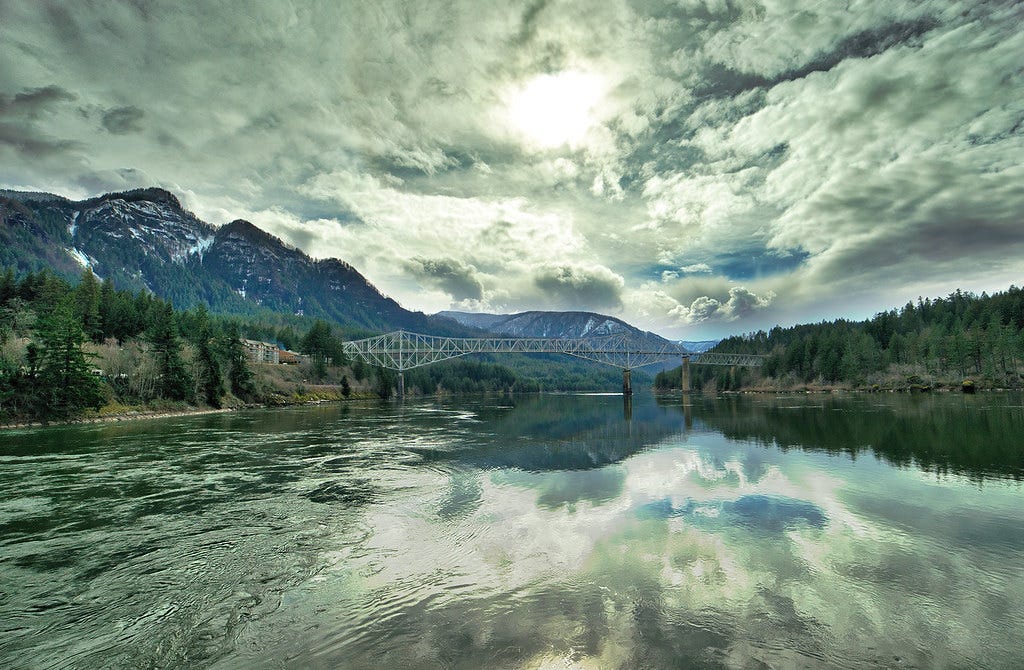The Way: Frank explores CRT, Laufer analyzes COVID, Knopp reviews Pence's visit
PLUS: Kris Nine discusses redistricting, Garson puts forth a bold solution regarding a Green UBI
Did you miss “The Liftoff”?
Read the latest version here
You shouldn’t have to be an “Insider” to be in the know.
Editor’s Note: An Outside Perspective
Every so often you cross paths with an old friend. The combination of physical and temporal distance collapses in a single instant and you’re suddenly forced to compare your past and present conceptions of that person.
Most of the time, something surprises you. Maybe it’s a new beard or hairdo. Perhaps they dress more (or less) like a lumberjack now. Or, more interestingly, it could be the case that something deeper has shifted — like they are truly a new person.
Only with that physical distance and the passage of time is it possible to get that shock factor — the people we see everyday never seem to change. That’s why it’s always so interesting to meet people who used to live in Oregon.
Last week, I crossed paths with three former Oregonians who now reside in D.C. They haven’t had the chance to make it back home since the pandemic, so their only sense of what the state is really like behind the headlines is through chance encounters with those who have recently visited (like myself) or currently live there.
All three asked me, “Is it really that bad?” For years, all they had seen were national headlines portraying Portland as a spot where violence takes place more frequently than visionary collaboration and Oregon as a place where walkouts seem more common than sitting down with stakeholders to solve problems.
I responded, “Go see for yourself.”
The shock factor of seeing an old friend change is not something to be underestimated. That shock can change how you perceive yourself as well as how you perceive them. That shock has value because it can change your relationship and challenge your assumptions.
Not every Oregonian has the privilege of being able to step away from the state and return with fresh eyes. But we need leaders capable of that sort of objective analysis of how we’re doing. When you’re surrounded by the same settings, same players, and same goals, it’s easy to think that everything is A-OK. It’s when you take a step back or, at a minimum, talk to someone who has, that you learn how things have really changed and where there’s substantial room for improvement.
Here’s to a better Oregon,
Kevin
To look forward to:
Rep. Wilde explores the creation of an Oregon Climate Corps.
Nathan Howard talks about his new role related to implementing.
Reagan Knopp explores the long-term ramifications of redistricting on Oregon politics.
Alberto Moreno discusses the idea of healthy leadership and the need for elders to support young Oregonians.
Jessica Gomez offers her next piece.
To read:
Peter Laufer compares the COVID responses of Marin (CA) and Lane (OR) counties. The latter has a long way to go to protect Oregonians.
read more here.
Kris Nine maps out the twists and turns of a remarkable redistricting process and wonders, “Can we do better?”
read more here.
David Frank explores the omissions in his Oregon K-12 education and points out that the application of Critical Race Theory to our curriculums may be less radical than presumed.
read more here.
Glen Claybrooks discusses her advocacy for healthcare reform and encourages the reader to think about why the status quo has persisted for so long.
read more here.
Reagan Knopp reviews former Vice President Pence’s visit to Oregon and what it means for the GOP in our state.
read more here.
Mark Hester looks to sports for an example of how we can find common goals among diverse communities.
read more here.
Jared Garson calls for a Green UBI funded by a carbon tax as a way to break the stalemate in Salem over what’s long been a controversial topic.
read more here.
To do:
Share The Oregon Way with three friends
Nominate a contributor to TOW
Tell us how we can improve!
"Bridge of the Gods Cascade Locks Oregon" by Kayaker Bill is licensed under CC BY 2.0


